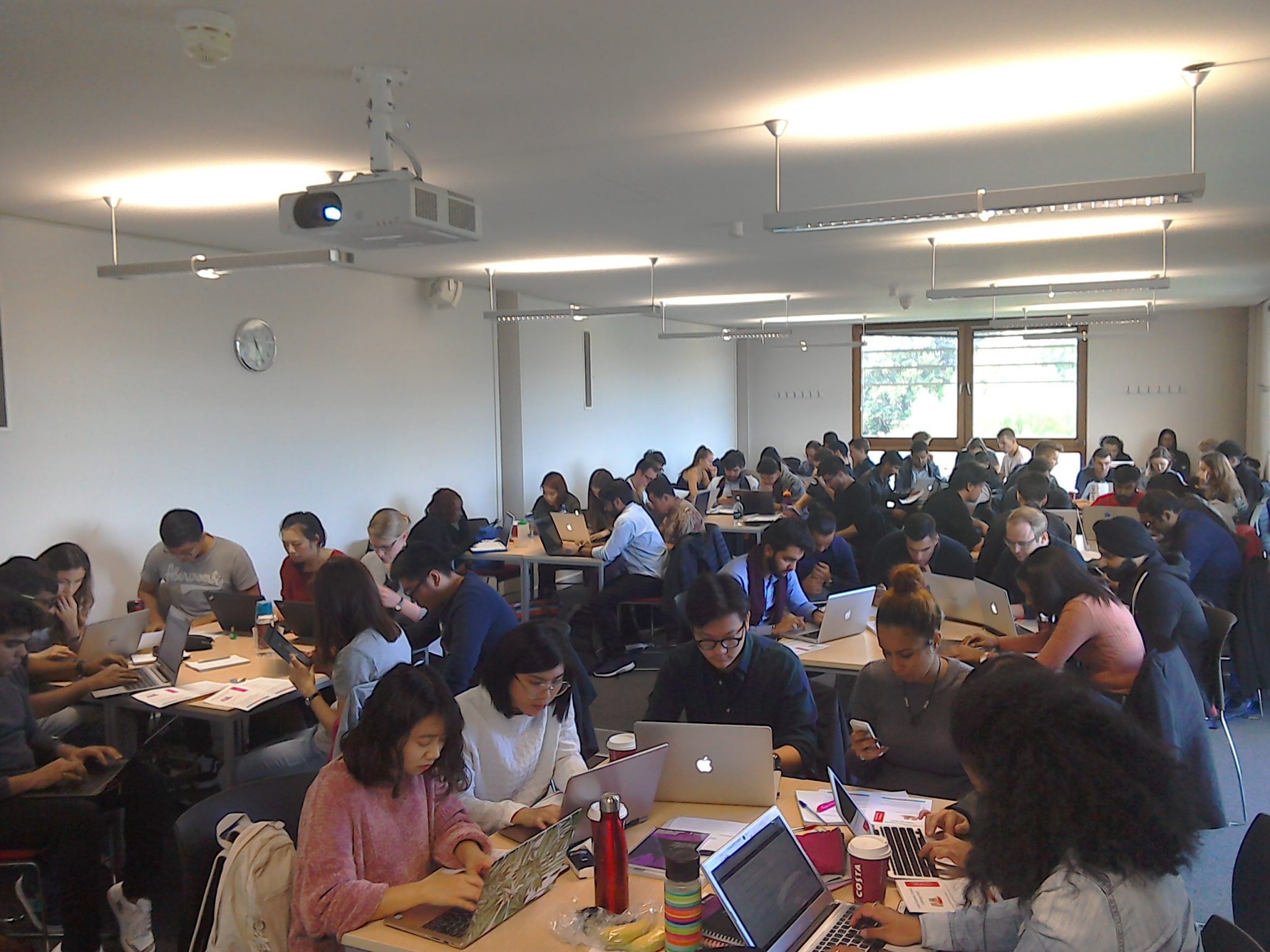NEWS | How Will the Pandemic Change Business Education?
Published On: Wednesday, 10th Feb 2021

“How will the pandemic change business education?”
It already has done and continues to do so. Other disciplines may long for a return to normal but the pandemic has changed our subject itself. Business schools need to reflect on what I assure you will become ‘textbook examples’ to equip our students for a new reality.
Milton Friedmann held that only a crisis produces real change, and that those who manage that change best will be those who have viable alternatives to the status quo ‘lying around’ waiting for their moment. We have seen this in the way that we’ve all been forced to adopt technologies and behaviours that have been around for a while but that we have resisted because they were difficult.
There’s a paradox at the heart of business. Good judgement comes from experience: experience comes from bad judgement. The way to resolve this is through deliberate practice in a space where all you spend is time. Experiential learning is all about imparting tacit knowledge – the soft skills that contrast with the hard facts that make up much of business education.
For around twelve years I’ve been involved with teaching modules that do this, emphasising teamwork, problem-solving and communication. A pedagogical model that supports this is RASE. We supply our students with resources – usually in the form of hard facts and theory; then we challenge them with an activity – often to work as a team to present a solution to a business problem; provide support through mentoring; then give feedback through evaluation.
Traditionally this sort of thing is delivered in the lecture theatre and the seminar room.

Then the pandemic came, and everything moved online. For many universities this was done in a matter of days, largely because unlike schools the infrastructure was already in place – students have been submitting work electronically for years. Extremely hard work and a bit frantic but a stopgap until the cavalry comes.
But maybe those of us who have been developing our teaching online for some years have found that our time has come. Because it is possible to deliver experiential learning remotely. It doesn’t have to look like a TED talk, in fact it’s better if it doesn’t look like a TED talk. Our resources – lectures, links, texts etc – are made available in advance (asynchronously); the activity happens in virtual breakout rooms; support comes from synchronous lecture engagement sessions and mentors visiting teams in their breakouts; evaluation takes the form of live online presentation, or increasingly a short video and one page document, sometimes with live Q&A. We have found that given clear instructions and expectations students are able to engage effectively. This year has seen such modules delivered to all our freshers, in two cohorts of over 150 at a time, to our international postgraduates and to MBA classes logging in from as far away as India, China and Australia . And to our delight we are finding that the standard of submissions is every bit as good if not better than ‘normal’. It’s too early to be certain why this should be, but some provisional conclusions are emerging:
There is a downside: it’s resource intensive, you can’t just cut and paste material or draft in extra bodies, and we miss the casual interactions of face-to-face and the excitement in the room so we look forward to resuming them in some form or other, but the benefits are enormous – for one it’s so convenient! We have been able to engage in numbers that we could never physically put together in one space at one time. This is especially true of ExecEd – so much easier to organise a half-day workshop when parking and lunch is taken out of the equation.
Moreover, there are some unique advantages:
- Collaborating online allows every voice to be heard, not just the loudest
- It’s genuinely global – if you’ve got a phone, you’re in
- There is no hiding place online – every contact leaves a trace – students raise their game
Crucially, the realisation that this is the future – being able to work and collaborate online is going to be a key skill for businesspeople; the confidence that comes with having done it and the knowledge that you can do it better next time is the essence of experiential learning. And that goes for the teachers just as much as the students!
Our thanks and appreciation to Paul Kirkham, Researcher at Haydn Green Institute for Innovation and Entrepreneurship, University of Nottingham, for contributing this article.

